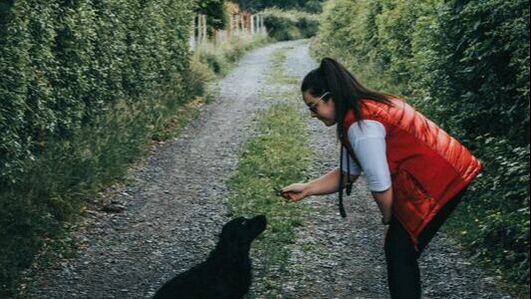|
When people think they know things it can become dangerous because they aren’t aware of what they don’t know. This ‘beginners bubble’ occurs in any sort of skill or profession, and we certainly see it in the dog training industry.
This perception can be known as the Dunning-Kruger effect. The Dunning–Kruger effect is a bias whereby people with low ability, expertise, or experience regarding a type of task or area of knowledge, tend to overestimate their ability. This can end up being extremely hazardous, especially when you work up close and personal with animals that have a bitey-end. When a trainer has had a lot of hands-on experience, they have seen the effect that training has on behaviour. They may also be very proficient at creating behaviour change. But they may not actually know the reasons or intricacies of why the behaviour happens, the underlying reasons of why it changes, or in fact the by-products of some training methods. Some methods have long-term effects that do not present immediately, and can affect the dog and their humans much further down the line. Additionally, this lack of thorough knowledge can mean they put themselves in situations where they are actually in danger, especially if the initial impression of the case is less severe than what they start dealing with in person. With confidence, at times, comes complacency, and without the correct safety protocols in place, sessions can become sticky very quickly. This can be entirely prominent when initial assessment questions may not be answered honestly, or there are factors that a person does not think to disclose before the trainer comes on site (which happens more often than you realise!) If people have only had training in theory, or have only worked with one dog, their hands-on knowledge with different breeds, their needs and how to adapt to the dog in front of them is lacking. Having theoretical knowledge is important, but things on paper or in a lecture hall are rigid and have a direct ‘yes or no’ answer most of the time. You can’t have a cookie cutter method for every dog because situations and circumstances are all unique, so you need to be able to adjust accordingly. What you think might be the cause of a behaviour may be occurring for a completely different reason, and if you don’t know the right questions to ask, or how to change a training plan, you may miss the mark completely. You need to know what you don’t know. It can be scary to admit you don’t have the answers, but it takes a lot of bravery to realise that someone else knows more than you and can help more effectively. If you try to ‘fake it until you make it’, it may end up turning around and biting you (literally!). The more you learn, the more you realise there is more to learn. It is extremely important to ask for help, refer on to other professionals, and be honest when you are not entirely sure. It takes a lot of strength to admit gaps in your knowledge, and being honest with those you work with ensures the best quality of care. The dogs and people you end up helping will be more grateful that you get them the right support, finding the right solutions more swiftly rather than through a process of trial and error. In the end, learning from others is actually really exciting! Being a professional, without input from others, can feel really isolating. Besides, those who have studied or practised in different disciplines, longer than you have, often have made the mistakes already, so you can learn from them without making them yourself. Many other professionals are happy to share and support - because in the end we are stronger together. There is no way to know everything, that is a fact of life. Having a community of knowledge and support means we can help in the most effective ways possible, with all the information we can and through different lenses and approaches. There is the saying, ‘many hands make light work’, but why don’t we also look at the fact that ‘Many minds can make great work!’ Authored by Sarah Endres Dog Trainer and Behaviour Advisor
0 Comments
|
AuthorsArticles created by the team at Allsorts Dog Training, Bay of Plenty, New Zealand Our Library
All
|
Home |
About |
|


 RSS Feed
RSS Feed